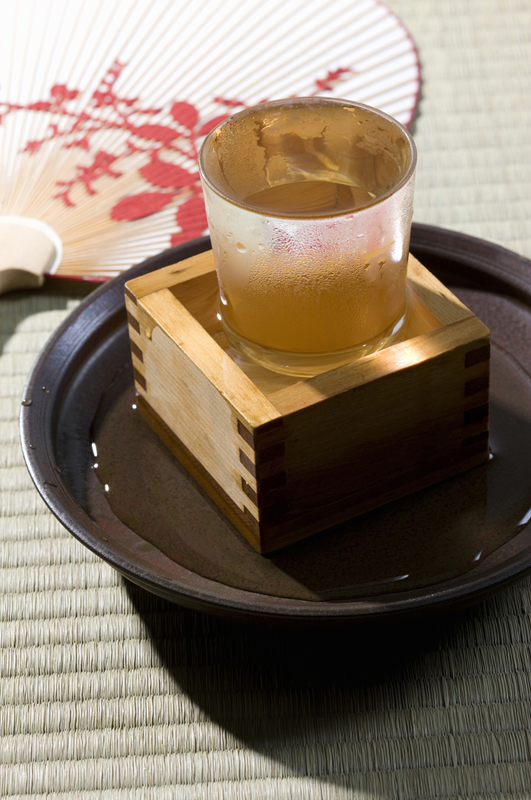Tokyo, Japan Feb. 23 Sun 7:21AM
Not Just Sushi
Japanese food, called 和食 “washoku” in Japanese, is popular all over the world- it's delicious, full of variety, and fun to eat!
Sushi is the most famous Japanese food. There are different varieties of Sushi available throughout Japan. Nigiri (hand-rolled sushi) and maki (sushi rolls) are popular and both can be found at any store with a food section, including convenience stores. The two most common ways to eat sushi are at a regular sushi restaurant, where orders are given to a waiter or chef at the counter, and kaitenzushi, rotating sushi, or sushi-go-round. The former is for serious foodies, as it can be a little pricy, while the latter tends to offer sushi for more reasonable prices and is intended for families.
Ramen
Ramen is gaining momentum these days outside of Japan. The ingredients for the broth depend on the ramen restaurant, but tonkotsu (pork bone), torigara (chicken bone) and gyokai (seafood) are widely used. This broth is then mixed with a sauce, which is usually based on soy sauce, salt, or miso (soybean paste). Most Ramen has one or a few slices of Chinese style barbecued pork and a boiled egg on top.
Udon
Udon is also a noodle dish made of wheat. It is served hot or cold. The noodles are thick, chewy, and hearty. Udon can be found anywhere in Japan, but the style in Kagawa prefecture, which is located in the north east of Shikoku island, is called “Sanuki Udon” and is nationally famous.
Soba
Soba is another popular noodle meal. Soba noodle is made of buckwheat flour. The scent of soba is unique and slightly sweet. It is also served hot or cold, and when eaten cold, the noodles and the sauce (soup) are served separately. Put some condiments, such as spring onion and horse radish on the sauce, pick up some noodles, dip them into the sauce cup and eat them together.
Tempura
Tempura is a deep fried food which uses a light batter. Popular tempura items are shrimp, kakiage (mix of several different vegetables which occasionally includes seafood such as shrimp or even scallop), fish, onion, pumpkin, and eggplant. They are dipped into a mild sauce or sprinkled with salt before eating.
Sukiyaki
Sukiyaki is a dish which is usually had with family members or friends. Thinly sliced beef, vegetables such as shiitake mushroom and green onion, tofu and udon noodles (some families leave this item for later, like a kind of finale) are neatly arranged inside a hot iron pot with a broth of soy sauce and sugar. The pot is on a mobile gas stove at the center of the table. It is served with a raw egg as a dip.
Nabe
Nabe is Japanese hot pot. All kinds of meats, seafood, and vegetables are boiled in a variety of broth- kelp, curry, tomato, cheese, soymilk, etc., depending on the main ingredient.
Teppanyaki - Wagyu (Japanese Beef)

In addition to Sukiyaki, another popular way to eat quality Japanese beef is teppanyaki. The lively atmosphere at teppanyaki restaurants is created by the sound of juicy meat being prepared on a grill right in front of the customers. There are many Japanese beef (wagyu) brands. They are graded strictly, with A5 being the highest. Kobe Beef, Matsuzaka Beef, Omi Beef and Yonezawa Beef are especially highly respected.
Tofu
Tofu is soy bean curd. Nowadays, people in many countries can find it in the supermarket, but it is no comparison to quality tofu found in Japan. Many restaurants soley focus on making artisan tofu in Japan.
Sake (Nihonshu) – Izakaya

Sake (Nihonshu) is not a food, but it should be mentioned here since it goes well with many Japanese foods. Sake is a Japanese alcoholic beverage which is made of rice, rice malt and water. The unique characteristic of sake is that it tastes good either hot or cold. It is said that there are about 5000 different brands from across Japan.
Izakaya
Sake and other alcoholic drinks are provided at many places, from vending machines and family-oriented restaurants to luxurious restaurants. But many people in Japan go to izakaya, where a wide range of foods and drinks are served at a relatively reasonable price, although this depends on the individual restaurant. It’s cheap, fun and quick, which results in attracting many students as well as all kinds of people just getting off work.
As it is easy to imagine, the items above are just the tip of the iceberg. There are plenty more. Takoyaki, Okonomiyaki, monjyayaki, sashimi, gyu-don, oyako-don, shabu shabu, hayashi rice, curry rice (quite a different dish than Indian style curry) and so forth. It is doubtless impossible to try all of them in a single trip, but one should try at least a few before making a judgment on Japanese food in general. There might be some hesitation when taking the challenge of eating something new, however, this is a fun part of travel, and the story and experience of authentic Japanese food will be an interesting topic to talk about after you get home!
